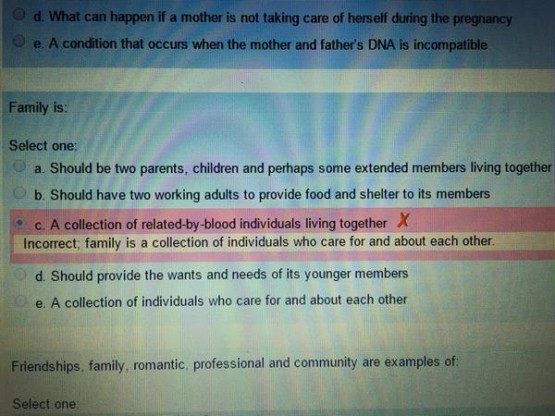Monthly Archives: July 2015
I didn’t really want the job, but I’d been looking for a while, and I couldn’t ask my girlfriend to keep covering my share of the rent. And reportedly it was good money, if dangerous.
.
 I had been a bike messenger, and was proud of it. But I’d taken a summer off to work in Yellowstone, and while hiking on Electric Peak scorched by the fires of ’88, my foot slid in the deep ash and I went down with my kneed twisted under me.
I had been a bike messenger, and was proud of it. But I’d taken a summer off to work in Yellowstone, and while hiking on Electric Peak scorched by the fires of ’88, my foot slid in the deep ash and I went down with my kneed twisted under me.
The pain was immediate, the knee unable to bear my wait, and I was alone, three miles from my car. The hike out was excruciating, as was every hike I tried to take the rest of the summer, particularly the foolishly agreed to hike along Sky Rim trail, when my brother threatened to kill and eat me if I died, and which ended with a long steep downhill I managed by throwing my left leg forward and dragging my right leg up, one lunge at a time, for mile after mile.
But by the time I made it back to San Francisco–after sadly breaking up with my summer girlfriend, trying unsuccessfully to move to Missoula, Montana, and having the car I bought that summer blow the engine an hour out on the drive from Missoula to to San Fran–I could walk on flat ground again, and I went back to the messenger shop and got on my bike.
I soon had a new girlfriend, a new apartment with her, and the beginning of a long happy life together, but the same old pain. Every day on the bike was excruciating, and finally I was forced to quit. My friend Jake had called me a lifer. I lasted two years.

I found out that nobody wanted to hire a former bike messenger. Our reputation preceded me. So cabbie it was, an occupation that, like messengering, had a handful of long-timers but a lot of turnover among those who tried it out and found it wasn’t for them. I remembered suppressing a sneer at a former roommate who’d been a bike messenger for half a day. Karma–I was a cabbie for a whole three months, hating the job every day, hating urban driving, hating drunks in my cab, hating the fat slob of a dispatcher for his sneering superiority and for assigning us low guys in the hierarchy the shittiest most poorly maintained cars in the shop, hating having to arrive at 2 p.m. and wait around up to two hours waiting for my name to be called for an available car, hating the feeling that I was a college dropout who couldn’t get a better job.
The other cabbies were pretty good guys, though, at least the ones who bothered to talk to me. One was a former bookstore owner, who found it hard to get a better job because nobody wanted to hire someone who’d been their own boss, afraid they’d be unable to take orders from someone else. Another like to play a game of pool before heading out, on the shop’s monstrously long table, where the balls rolled mysteriously slowly, but rolled on and on an on, in apparent defiance of the laws of physics.
And they generously gave me tips on the job: avoid the airport–you’ll get big fares, but the long wait times aren’t worth it; ignore the radio calls and stick to areas where people are likely to flag you down; if you get a drunk asshole in your cab, drive to the nearest police station; stay out of Hunter’s Point, Bayview, Third Street, Sunnyside; don’t pick up black people.
Some of the advice I took, some I didn’t.
And I have a few stories I will tell.
[Image credits:
- Bike Messenger: http://www.gibsonpictures.com/MoreBikeMessengerAndCommuting.jpg;
- Electric Peak: “Electric-peak-trees”. Licensed under Public Domain via Wikimedia Commons – https://commons.wikimedia.org/wiki/File:Electric-peak-trees.jpg#/media/File:Electric-peak-trees.jpg
- Skyrim Trail: http://www.spiriteaglehome.com/cdt06%20images/WY220%20Sky%20Rim%20Trail.jpg
- Apartment House: Google.
- Cab: http://img.sfbay.ca/home/wp-content/uploads/2014/09/taxi-788×563.jpg
- Cab staging area, SFO: http://ww3.hdnux.com/photos/33/24/06/7160226/5/920×920.jpg]
 Puppies are so great. You get them when they’re so tiny and watch them grow… into bears? Imagine the come-down, thinking that you have dogs so smart that they can sit on their behinds, only to discover…
Puppies are so great. You get them when they’re so tiny and watch them grow… into bears? Imagine the come-down, thinking that you have dogs so smart that they can sit on their behinds, only to discover…
Ermm…
Seattle may be getting rid of single-family zoning! Wait, no!
The Anti-planner takes issue with the new HUD fair housing rule. On which, regardless of the merits (I have no real problem with it), I continue to believe represents a liability to Democratic unity.
Here’s a list of less urban places thatlawyers should maybe consider.
It used to be that whenever I took one of those “Which party should you belong to” quizzes, I’d get the Natural Law Party. Maybe that’s what fuels my (so far unsuccessful) desire to like Rand Paul. (I sometimes still use the NLP as a dodge to “Are you a Republican or a Democrat?” questions when I don’t want to answer them.)
Atticus Finch’s name is being tarnished due to the release of Go Set a Watchman, but the seeds were already there on account of his rape-denialism and insufficient liberalism in To Kill a Mockingbird.
Kate Knibbs’s identity was stolen to become a blogger.
Jesse Ventura is Feeling the Bern.
Perspective! Here are well-placed photographs that make some dogs look huge.
Vote Cruz ’16, Because Let’s Just Get This Over With.
Judd Legum makes the progressive case for Donald Trump.
Kansas City is going forward with its attempt to significantly jack up its minimum wage (discussed here). The carve out for teens could make for some… interesting incentives.
Scott Sumner wonders if the minimum wage hike proposal in the UK has an anti-immigration angle.
William Saletan tweeted the following image, commenting that his son lost five points on his health test for giving the “wrong” answer:
That is one mess of a question. First, Saletan’s son gave an incorrect (or at least incomplete) answer. However, the “correct” answer is wrong, too. In fact, those are the only ones that are demonstrably wrong. The others may be right or wrong depending on one’s perspective on the way that things should be. To mark those wrong is to expressly deduct points to someone for having the wrong opinion. The first two might be right or wrong also depending on perspective, but it’s not quite the same level of opinion involved as there are legal ramifications and such.
Kid Saletan’s answer is wrong because adoption is a thing, and the “correct” answer is wrong because that would describe my former roommate and myself, and we weren’t a family.
It’s not a really easy question to ask in any event. The only answer that I would be comfortable calling correct is something along the lines of “People who live together, care for one another, and consider themselves a family.” That leaves out the part about intended perpetuity (of the relationship, if not the living arrangements), though that has a degree of subjectivity to it. But then, so does any attempt to define “family.” Which makes the inclusion of the question all the more questionable.
 Here’s another article on the Confederados. The settlement of Confederate self-exiles who escaped to Brazil.
Here’s another article on the Confederados. The settlement of Confederate self-exiles who escaped to Brazil.
Arindrajit Dube is a leading advocate for raising the minimum wage, but also says that food stamps and the like are not subsidies for low-wage employers.
Congressmen are hesitant to be alone with female staffers, which hurts female staffer careers.
Vladamir Putin’s relationship with Texas secessionists is interesting.
Matt Lewis argues that conservative commentators need to better assimilate.
Looking more closely at the Iceland miracle.
Fortunately, since nobody’s going to get killed over this, we can consider it provocative and brave instead of provocative and mean and reckless.
What’s up with the sucky state of American actors? Ah, well, as long as we can keep importing them, no biggie.
Though they say we still need preschool (but do we?), should we work harder at putting a TV in every home, so that kids can watch Sesame Street? It’s almost kind of funny that PBS – which is free – is one of the reasons I am itching to pay money for Satellite.
Hollywood allegedly has a pedophilia epidemic.
WARNING: THIS REVIEW HAS SPOILERS
Julie Schumacher’s Dear Committee Members presents English Professor Jason Fitger at “Payne University” and what I presume is only a sample of the numerous letters of recommendation his job requires him to write. It’s an epistolary novel, composed of these letters, letters to the department chair and various university administrators, and, occasionally, his attempts to fill out online forms.
I don’t like Fitger. He represents the to me all too believable caricature of the “oppressed” academics who, to quote NPR’s review, “feel that their genius has never gotten its due.” True to form, Fitger sometimes claims to feel a responsibility to the undergraduates who pay his salary but only rarely does he demonstrate that sense of responsibility by writing a letter of recommendation that actually is designed to help the student get the job or the scholarship or admission letter to grad school or law school or medical school. His letters of rec instead go off on personal tangents about his own and his department’s beleaguered position at the university or about unflattering traits of his recommendees. He’s the type of guy who says, “sure, I’ll write a letter,” but then writes something really bad.
In his letters to the department chair and to people higher up in administration, we hear the familiar complaint of “I know there are budget difficulties” with the added but unstated complaint that “but those difficulties should never have to affect me or my department in any way.” And again another complaint, his creative writing program and the English department itself is disfavored because–The Horror! The Horror!–disciplines like economics are getting more of the pie. A frequent complaint in his letters is about the renovations done for the economics department (in the same building as English, but a floor above), and dust and inconvenience such renovation causes him.
Not that he has nothing to complain of. If we trust him (see below), then it is probably a shame that his program and grad students are being continuously disfavored in favor of other programs.
Still, rare is his acknowledgment that maybe people shouldn’t go into debt to get degrees in creative writing (his bailiwick). And when he does acknowledge it, it’s only to say that creative writing students (if they’re graduate students, if not, he’ll just mis-write a letter of rec while they search for a job to pay their debts) need to be “funded.” And towards the end of the novel, we find the maudlin consequence of the paucity of funding:
[WARNING, HERE’S A MAJOR SPOILER]
His most promising grad student, working on a novel of a lifetime, loses funding and because Mr. Fitger cannot find a “residency” or more funding, this student commits suicide. There seems to be some recognition of Mr. Fitger’s own role in the case, but who can blame him? He’s in the trenches doing the best he can. Little consideration over whether he advocate restructuring the program so as to make it more appealing or at least better able meet his students extra-academic needs (like eating, mental health, a decent career).
[/END MAJOR SPOILER WARNING]
Now, one of the first things you learn in Literature 101 is that you can’t trust the narrator, and exhibit A is the epistolary novel. We see the letter writer’s words–his rendition of events, his recollections, his biases–but we don’t see others’ perspective. In this sense, the maudlin moment [spoiled above] can be interpreted as the way the very self-centered Fitger sifts through and make sense of the sad event.
Perhaps Schumacher does not intend that we like the character. Perhaps Schumacher is exposing vicious academics for who they are. The blurb on the back of the novel tells me that Schumacher has a position at a university and has “written more letters of recommendation than she cares to remember” (quoted from memory, maybe I’ve got it a bit wrong, but that’s the gist). She’s seen what it’s like, so she can call it out. Or she’s seen what it’s like, and she wants to sound the alarm about the “crisis in the humanities.”
It is there I have to decide whether I trust the author, and not merely the narrator. Presumably as an author herself, Schumacher realizes the don’t trust the narrator rule, but does she observe it? Does she want us to take as granted that about which we should be skeptical, or is she opening up the whole things for grabs, as a good (in the Literature 101 don’t trust the narrator sense) author should?
I don’t know the answer. I’ve taken some lit courses, but don’t know all the permutations and explorations of the “problem of the narrator.” Neither have I ever read anything else by Schumacher, so I can’t judge. I also, deep down, would like to believe the author’s intentions are not important, or are of only minor importance. I would like to believe the work should stand or fall on its own. But I find myself going back to the author and distrusting her artfulness, at least in this case. That I do so probably has as much to do with my own “ambivalent about academics” bias as anything. But there you are.
[p.s. I’m out of town and may not be able to respond as quickly as I’d like to comments.]
So my daughter has taken a bit to an Android game her pop likes to play
She has not memorized that particular level. She may have played it before, but this was something like the seventh consecutive level that she had solved. She was on a roll. Some of the ones she conquered were more difficult than this one. The biggest issue she has on some levels is simply coordination. On other levels, she doesn’t always understand that you can’t always go the quickest route (because you’ll be cutting off other sets), but she’s starting to self-correct on that with increasing frequency.
The goal, obviously enough, is to connect all of the dots to the dot of the same color. The other requirement is that all of the squares be filled. At the upper levels where it’s 11×11 or 14×14, that can be the really challenging part. At the lower levels, like this one at 5×5, it almost happens automatically. Whenever it doesn’t, though, Lain gets pretty confused because she thinks she has solved the game. She hands it to me and I tap the button to move it to the next level.
In addition to being able to solve a level, it was a big deal for her to be able to know where to click on the “You solved this level, do you want to move on to the next one?” button. This was a big deal for daddy, as it meant that I could give her the game and unless she got frustrated with it, she could keep herself entertained for a bit without my interventioned. Excepting when she would run into a frustrating level, or she didn’t fill all the squares.
Am I still in the United States? Am I still in 2015?
Notably, Blockbuster has been in the news lately as people have been reminded that they had the opportunity to buy Netflix for a song, but declined to do so. Not sure why thats been making the rounds now, as its been known since 2013.
Im biased of course, since I put Blockbuster in the same list as of Very Terrible Corporations, but its worth noting that if they had purchased Netflix, then Netflix might not have become Netflix as we know it. The same business acumen that lead them to take a pass on Netflix could have prevented Blockbuster from so fully embracing the whole “streaming” thing.
I was a member of Blockbusters mail service for about two days several years ago. It seemed like they were better than Netflix, but that turned out to only be because they hid from prospective buyers their anemic selection. They had an entry for every movie you can imagine, only to find out that most of the ones I wanted were “unavailable.”
Another interesting thing witnessed in Alaska. They have no compunction about having this car in the car rental lot:
If that isn’t an advertisement, I don’t know what is. Well done.
[Ed note, my apostrophe isnt working]
 China, where wealthy women embark on an expensive campaign to find a status-appropriate man.
China, where wealthy women embark on an expensive campaign to find a status-appropriate man.
You may remember recently I used that Mary Ellen Mark photo of the smoking nine year old. NPR tracked her down, and her life turned out how you might expect. Interesting story.
Why do CEO’s make so much money? A CEO explains.
Atlantis didn’t exist, but here’s where it was mapped.
Jeff Fong argues that California spending more on schools means fewer permits for housing.
Wendell Cox looks at mid-sized metropolitan areas in the United States.
Nap rooms are falling out of favor in the workplace.
Jeffrey Anderson believes that the GOP primary process needs to be revamped with what can be best described as a more caucus/convention-oriented approach.
Rita Arens argues that marriage contracts should be temporary. And that’s as good a recap as any as to why despite my long-standing support for SSM, I don’t describe myself on “liberal” as marriage. Also, I think we should heed the words of Dharma Montgomery here.
Via Hanley, here’s some absurd Brutalism. As we all know, I’m kind of a fan of the style, but these lack the critical utilitarianism.
That’s definitely a Hell of an amusement park!
States (like Connecticut) are often looking for a good excuse to go after homeschooling parents, and some Michigan legislators think they may have found one, and combined with recent events in North Carolina and revelations in Arkansas leave me concerned that “We need to crack down on homeschooling so the government can keep a closer eye on kids” is going to be a more oft-used argument.
Following up on a previous Linkluster, the New York Post talks about the burdens NYC is placing on Upstate New York.
 Let them fidget! Fidgeting may be helpful for kids with ADHD.
Let them fidget! Fidgeting may be helpful for kids with ADHD.
Nancy Lubin had a really good idea: Texting as a crisis prevention aid.
Alex Cuesta offers a list of simple ways to reduce football head injuries.
Americans may be able to take advantage of low tuition rates in Germany. It’s an intriguing proposition.
David Frum makes the case for closing Europe’s harbors to refugees, who are in many cases not that distinguishable from immigrants looking for work.
Karl Miller argues that we need to stop looking at technical schools as some sort of consolation prize.
Scott Gilmore says that Canada is too self-satisfied with the status of its racial progress. I can’t speak to that, though it seems the comparison with the US (and the racial concerns of African-Americans therein) is rather unfair. Aboriginies/Indians/etc – especially with regard to reservations – are a uniquely difficult issue in the US and Canada.
It’s a long stereotype that few people believe anymore, but the stereotype is still there. Noah Smith puts to rest the notion that Japan isn’t innovative.
The testimony of a white man with black names.
I… can relate to this somewhat. What do you do with a family heirloom that represents something of shame.
Michigan State sent out a letter questioning the family decisions of faculty. As in, the decision to choose having a family. My wife has gotten this “talk” twice, actually. (Both times from women, as it happens.) (Childless women, though in one case due to tragedy.)








